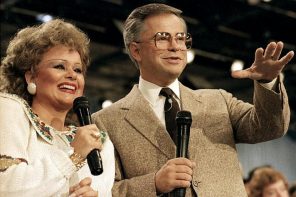In 2004, I took my parents to see Bombay Dreams. I prefer dramas, but made an exception for this, the first Indian musical on Broadway.
I was surprised at how moved I was when the performers came on stage in Indian-themed clothing against a backdrop of the Mumbai skyline. Growing up on Annie, Peter Pan, and Mary Poppins, I never thought I would get to see anyone even closely resembling me on a Broadway stage.
Having said that, the production was far from perfect. But that didn’t stop me from supporting it and encouraging others to see it. A Broadway producer had taken a risk on the play, and on telling a South Asian story. As an Indian American I felt that made it worthy of my support. Even if this production was not great, it was the beginning of something great.
Unsurprisingly, the show closed within seven months. But seven years later there are more, and more authentic, Indian characters on television (Parks and Recreation, The Good Wife, Community, The Big Bang Theory, The Office, ER, and The Daily Show). And there have been several major films with Indian characters: The Namesake, Slumdog Millionaire, and Harold and Kumar to name a few.
Did the lackluster Bombay Dreams promote increased Indian-American exposure on film and TV?
Real-Time Hypercriticism
A few Sundays ago, I watched the premiere of the first TV series featuring American Muslims, TLC’s All-American Muslim. Reality TV, like Broadway musicals, is not my preferred genre. Yet, as with Bombay Dreams, I made an exception and watched the show—along with 1.7 million others, as it turns out.
I have limited expectations of reality TV and so maybe my bar was too low, but I actually enjoyed it. That is until about fifteen minutes into the show when I looked at my Facebook and Twitter feeds.
Suffice it to say they were filled with real-time hypercriticism of the show and heated debates about what it lacked and how it could have (read: should have) been better—more profound, representative, and educational. Somehow profound, representative, and educational are not adjectives I associate with reality TV. For others that do, I can understand their disappointment.
After I saw the crit-fest online by my people, I felt both stupid and guilty for watching and enjoying this ‘dumb, sub-standard’ show merely for its entertainment value. I chided myself for supporting this imperfect representation of Muslims, and ignoring its major flaws.
But then, I asked myself, how could I not? And reminded myself of Bombay Dreams.
I watched All-American Muslim to show support for my fellow American Muslims. Those featured on the show, and those involved in its production, promotion, and development.
An American Muslim woman from Dearborn pitched the show’s storyline to several networks before TLC agreed to further develop and produce it. Her self-determination broke down a barrier that is bringing us all one step closer to seeing more, and more authentic, American Muslim characters on American TV.
As a challenged community in America, public praise, private criticism, and self-determination will help us progress much further and faster as a community than private praise, public criticism, and entitlement. (Just ask the LGBT community.)
To me, this show is worth celebrating for the simple reason that it features real Muslims on TV. It could be the opportunity we as American Muslims have been waiting for—the chance to tell more and more of our stories to our fellow Americans. It could be the beginning of something great.




